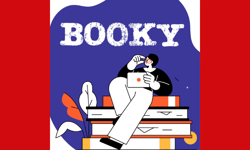Britain’s regional newspaper industry proudly produces a total of 1,295 daily, Sunday and weekly publications – all solid pillars of society, fervently focusing on local news, education, health, sports and community issues.
As far as the age-old trade of prostitution is concerned, this is only regularly mentioned in factual coverage of magistrates’ court convictions, along with very occasional colour features on red-light problem areas.
Until, that is, you get to adverts in most titles’ ‘Personal Services’ columns where you can suddenly feel you have been transported from your local newspaper to the middle of a sleazy porn magazine.
You can’t miss the start of these sections, some announced with the most brazen, semi-display ads promoting indecent premium phone lines.
A typical example is this one, carried in a regional Sunday title on 13 February 2011: ‘Horny girls 18+ looking for filthy chat with you right now, only 36p per minute’.
Not nice, but ‘adult chat lines’ are completely legal, implying and involving no more than explicit late night phone calls, serviced by women in call-centre environments.
Some argue this is acceptable as long as the language and images are kept under close review; others feel strongly that the services and how they are advertised goes against the grain of newspapers’ ‘family’ ethos.
But what about the small text advertisements lurking in the same classified columns, using a rather obvious code understood by men looking to pay for sex?
Read these recent examples carried in a random variety of regional daily, Sunday and weekly newspapers bought in London, the North-West, and the Midlands, and honestly consider what they offer:
* FANTASIA X 24/7 best rates. Gorgeous fun within 1 hour
* ORIENTAL waterbed massage, uniforms, city centre
* 5 star Ultimate Massage, £40 all inclusive. Gorgeous girls
* PARADISE MASSAGE EAST HAM, lady for unhurried massage
* AFTER DARK SECRETS, Beautiful bubbly ladies available 8pm – 6am, no rush
* CHINESE FLOWER massage, no rush, h/h visits, 7 days
* Abigail’s shower massage, home/hotel, quick response
In most cases, these adverts are an ‘all but said’ cover for brothels; customers who call and arrange ‘massage’ appointments knowing they will be offered a variety of ‘extra’ sexual services.
‘So what?’ may well be the response of some cynical observers, ‘they are individuals with a choice and their choice is to sell sex’.
Sex trafficking
Becoming a prostitute is not, of course, a career goal, and many participants are desperate women, driven to the trade by poverty, drugs or the abusive influence and control of men. For some it’s even worse – they were initially hopeful illegal immigrants but actually became victims of sex trafficking.
Eaves Housing, a charity that looks after women trafficked into the sex trade, is one of several campaign groups putting pressure on newspaper publishers to stop carrying such adverts.
Denise Marshall OBE, Eaves chief executive, said: “In London’s local papers, 80 per cent of ads for adult massage parlours or saunas are fronts for brothels, where men can buy sex. Newspaper owners turn a blind eye to this, insisting that they do not advertise anything illegal, while banking their gains from the sex industry.
“The irony is that local papers are full of articles about the problems caused by or related to prostitution – the blight of kerb-crawling on local neighbourhoods, the increase in drug crime – but they are directly contributing to the problem by advertising brothels."
The massage parlour ads create serious business for brothels. In 2008, a survey of London’s sex industry commissioned by the Poppy Project, a government-funded group, estimated that the 921 brothels it examined made at least £86 million a year through their newspaper ads alone.
What the ads are worth to newspapers is more difficult to calculate, but an idea was provided by a Parliamentary report’s findings that in just one English county, a publisher lost up to £250,000 by banning massage parlour adverts from its products.
Leading the way
Published in May 2009, the House of Commons’ Home Affairs Committee report on ‘Human Trafficking in the UK’ said: “Newsquest decided to stop taking classified advertisements for ‘adult’ services which, we were told, had resulted in a substantial loss of income – between £200,000 and £250,000 for the Hampshire region alone.”
The report added: “We welcome Newsquest’s decision; and urge other local newspapers to follow that lead.”
Newsquest was the first – and so far only – major regional publisher to ban adult services ads from all 300+ of its UK newspapers back in July 2008.
Speaking at the time, Andy Parkes, group editor at Newsquest South London, said: "Despite operating in accordance with industry guidelines, the company has taken a decision to no longer publish adult services advertisements, either in print or on its websites.
"Increasing concerns regarding the appalling issue of human trafficking has been significant in this decision, which is effective immediately."
They weren’t the very first – the Manchester Evening News was among a smaller group of 20+ regional papers then owned by Guardian Media Group that ceased publication of all health club, escort and personal services advertising in December 2007.
Their decision was based on concerns that advertisements for such premises and services, if proven to be used for criminal activity, could be classed as profiting from the proceeds of crime.
Some family publishers too – such as the Midlands News Association that publishes the Wolverhampton Express & Star – have always refused such advertisements.
But apart from American-owned Newsquest, none of the other major regional groups have a blanket ban on the ads.
Instead, Johnston Press, Northcliffe, Trinity Mirror and Archant all rely on Newspaper Society guidelines that titles are “encouraged to liaise with their local police and other local enforcement agencies” to check that only “legally permitted sexual services” are advertised.
Critics feel that all this means is that ads should not actually describe specific illegal activities, and that newspapers only ban individual businesses when illegal activity is known to have taken place, ie: when police actually raid a sauna and make arrests.
Prospects for government intervention
This may all have changed if Labour had remained in Government last year, with Vera Baird, the then Solicitor General, and Harriet Harman, the then Equality Minister, promising new legislation to outlaw newspaper advertisements for all but the most regulated massage venues and escort agencies.
Awareness of the problem is still reflected by the Home Office, who when approached on the new government’s views said: “We agree that it is not desirable for local newspapers to advertise sexual services.
“We are committed to tackling the exploitation and harm caused to those involved in prostitution and we will ensure that we develop the most effective response for doing so.
“We are aware that sexual services continue to be advertised in some newspapers and we are considering whether further action may be necessary.”
When pressed, however, the Home Office made it clear that Conservative-Lib Dem coalition ministers “have their own ideas” and “don’t see legislation as the most effective approach”.
Even without new legislation, newspapers were warned at the end of last year that they could be held criminally liable if they ran ads which turned out to be linked to human trafficking, exploitation or proceeds of crime.
This point was clearly made in a letter to 170 London editors in November from Detective Chief Superintendent Richard Martin, head of the Human Exploitation and Organised Crime Unit of the Metropolitan Police.
He wrote: “The adverts often purport to be massage parlours, saunas or escort agencies, but are in reality a front for criminal networks to advertise trafficked victims for sexual services.
"Advertisements that offer multi-national or young women or which are sexually suggestive in tone are often the type found to be linked to the provision of sexual services and / or the presence of trafficked women.
"It is these types of adverts I am seeking your support in preventing. I would ask that you put in place a system to satisfy yourselves that those seeking to place advertisements are genuine concerns or businesses and not a cover for the criminal activity highlighted above.
"As you will appreciate, criminal liability can arise in certain circumstances where evidence clearly shows that the advertising in question supports or promotes offences associated to trafficking, exploitation or proceeds of crime."
No one knows if this warning was heeded, but there has certainly been no announcement of any new initiative to clean up regional newspapers’ classified sections – perhaps unsurprising given the revenues that would be lost.
Instead, it seems that our American cousins continue to lead the way, with the Washington Post the latest and highest profile newspaper to ban massage parlour ads after huge pressure from Congress.
A detailed internal note explaining its actions in September reads: “We have been examining the policy on massage parlors [sic] over the past several years [and] have seen law enforcement identify a number of such businesses as being engaged in illegal activities.
“We have also been directed to postings on adult websites from customers of these businesses that refer to illegal activities taking place at these establishments.
“It has become clear to us that our existing standards needed to evolve. We have therefore decided not to accept such advertisements going forward.”
The NS view
Back in Britain, meanwhile, the majority of regional newspapers continue to sully themselves by accepting classified adverts for massage parlours, escort agencies and dirty chat lines that badly clash with their family and neighbourhood-friendly styles of content.
Surely this huge matter of taste and standards, along with potential legal issues, deserves firmer and more coordinated action?
Not so according to the Newspaper Society, which provided its most up-to-date stance on the issue to InPublishing on February 15 2011.
Its statement reads: “The NS updated our guidance to members, following discussions with the previous government, to highlight concerns about the serious crime of human trafficking.
“The government welcomed this. However, the NS is not a regulatory body. The final decision on whether or not to run an advertisement would have to be taken by individual publishers.
“The [new] government recently confirmed that it had no plans to prohibit the advertising of legally permitted sexual services in newspapers. Nonetheless, many newspapers have a policy of non-acceptance or have been encouraged to liaise with local police and other enforcement agencies.”
And so, for now, the debate on the presence of sex ads in our regional newspapers rages on.










